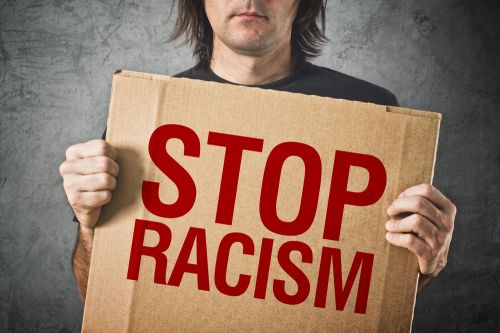导语:10月4日,有一名新加坡华人女性在网上发布了一封信,提到种族歧视的问题,引起了广泛的讨论,我们来看看她是怎么说的。

你体会过种族歧视吗?相信大多数人一定和万事通一样虽然长期生活在新加坡这个多种族国家,但是对于种族歧视没有什么具体感受,就只觉得是国际新闻里,才会出现的词语。

早前,有一名新加坡华人女性在网上发布了一封信,提到种族歧视的问题,引起了广泛的讨论,我们来看看她是怎么说的。
种族歧视是什么时候成为问题的?
我在新加坡的大部分时间里,我都没有把自己当成华人。我只是单纯的一个新加坡人,跟其他种族的新加坡人是一样的。

当我认识新的朋友时,我不会马上想到他们的肤色、宗教或种族,而是互相友善地微笑和坚定地握手,并且彼此尊重。
在我去欧洲工作之前,我的“华人”身份从来都不是问题。但是来到了欧洲,我经常被一些奇怪的人所做的讨厌的事情所骚扰。
最令我惊讶的是,回到新加坡,有一次我发现商场的销售员对我视而不见,或者面对我的时候脸上带着冷漠的表情,但是当我的英国丈夫进来的时候,销售员热情地问候他,服务简直不能更好。
这种赤裸的种族主义让我不安。
更让我不安的是这不是某个种族的问题,来自不同种族的人都会对欧洲人格外热情,无论是男性还是女性,通常他们还都很年轻。
我这一代的新加坡人接受了我们建国先父李光耀先生的愿景:无论种族、语言还有宗教,我们都是一个团结的民族。这个美好的愿景什么时候被改变了?这种改变是什么时候悄悄发生的呢?”
英文原稿
“For most of my life in Singapore, I had not thought of myself as a Chinese. I was simply a Singaporean.”
It must be nice not having your nationality doubted. Many minorities here are questioned (and always have been) when they say they are Singaporean. I was born here, as were my parents, yet I am constantly asked where I’m from, and asked for my FIN card rather than my I/C. I’d like to be considered “simply a Singaporean” as well, but I have to explain myself all the time. Sometimes I have to convince people that I belong here, and that’s pretty frustrating because I never had to do that in Australia and America, two countries where it seemed more likely that my identity would be questioned.
“My “Chinese-ness” was never an issue until I went to work in Europe, where I was often accosted by strange men making unsavoury propositions.”
I’m truly sorry that you were treated differently in Europe, and that you had to confront your “Chinese-ness” in such a hostile context. It sounds like this was your first experience of being a minority. See, in Singapore my “Indian-ness” has always been an issue! A taxi driver told me that I was lucky he picked me up because usually most drivers don’t like having Indian passengers. The bus uncle used a derogatory term for Indians on me every single day of primary school. A student that I taught in an elite Singapore institution commented that it’s a “known fact” that Indians are thieves. I’ve been restricted from applying for jobs writing for English publications that are bafflingly “Mandarin-speaking only” and I’ve seen apartment rental ads that exclude Indians. You got to return to Singapore where your “Chinese-ness” didn’t make you stand out because you’re part of the majority. It must be so comforting to be accepted without question in your home country.
“However, it is in Singapore that I find sales associates ignoring me or following me with glum faces, and then rushing to greet my English husband effusively when he entered the store.”
That really sucks. I hate it when sales associates ignore me in favor of people they prefer to serve. An Indian family friend who happens to understand Mandarin was in a make-up store recently when she overheard the salesgirls commenting that there was no point in serving her because Indians can’t afford high quality products. Again, this sounds like a relatively new experience for you since marrying an Englishman, but I can spend the whole day recounting such examples from my own experience – over three decades’ worth! Not to say that two wrongs make a right, but I do hope that you understand that this disturbing trend of racism is not new in Singapore just because you happened to be on the receiving end recently.
“Singaporeans of my generation embraced the vision of our founding fathers: a united people regardless of race, language or religion. When did this ideal change? How did we let it happen?”
Oh, Dr. Lee. I have no idea which generation you’re from but I can tell you that in my and my parents’ lifetimes, “regardless of race, language or religion” were words recited daily in a national pledge for 10 seconds during each morning school assembly and then conveniently ignored for the remainder of the day. You sound shocked and dismayed that race has become an issue in Singapore without realizing that it has always been an issue for minorities. If you’ve noticed more conversations about race lately, it’s because we have more platforms to talk about it now – social media has been very beneficial for the previously voiceless (You do know there are other outlets besides the Forum section? I remember when state-run media was the only space to air grievances in Singapore. Strangely, they never published any of my or my friends’ letters about issues like racial discrimination in the workplace or those TV screens on the public buses that only played Mandarin shows during peak hour). Unfortunately, it means that you and others who were accustomed to never having to think about race, have a lot of catching up to do.
一石激起千层浪,话题引起了网友的激烈讨论,让我们看看大家都怎么说:
太玻璃心了吧!作为华人都感觉自己在新加坡受到了歧视,那你让马来族和印度族的人怎么活?
关于种族歧视的这件事,有时候我们不能改变出身,我们可以改变自己,在黑人面前我们没有什么资格谈论种族歧视,但是也有很多优秀的黑人依靠自己的实力让全世界的钦佩,所以不管你是什么人,强大自己是关键。
我怎么觉得sales不是歧视你,而是对你的英国老公感兴趣呢?哈哈
新加坡从来都没有根本杜绝种族歧视啊!
这有什么的呢?他歧视你,你也可以歧视他啊!
做人有一颗强大内心多么重要呀,我被新加坡老太太指著鼻子骂中国人都是小气鬼,我说什么了啊!